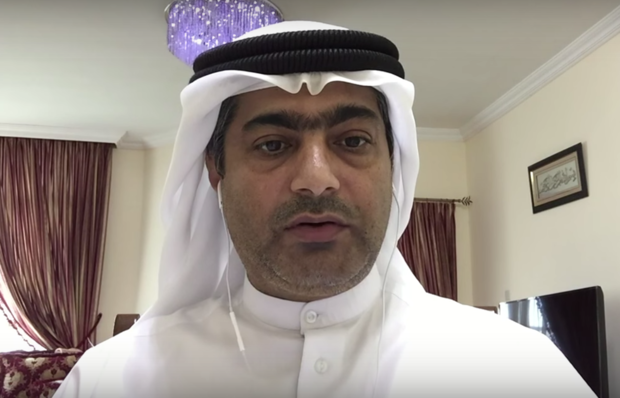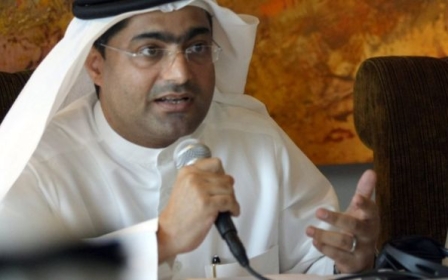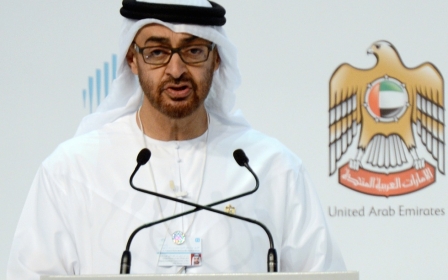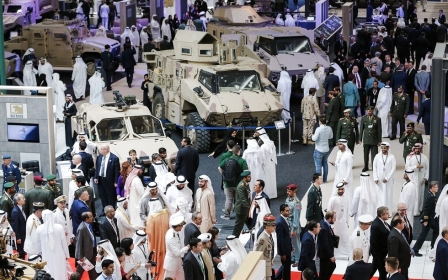Ahmed Mansoor: Why we must not allow a brave man to be silenced by the UAE

On 19 March in Dubai, Emirati human rights advocate Ahmed Mansoor was seized by security forces and taken to an unknown place. Friends and colleagues, among whom I am proud to number myself, are fearful that he will be tortured.
Call for freedom of expression and the facade of Dubai's tolerance crumbles. It is then you enter a 21st century police state
With good reason. The United Arab Emirates, which includes the thriving tourist and business hot spot of Dubai, routinely detains those who question wrongful arrests and manifestly unfair trials. It seizes those who are deemed to be supporters of the outlawed Muslim Brotherhood.
Critics of the appalling war in Yemen are arrested. A Jordanian journalist was just sentenced to three years in jail after being convicted of damaging the reputation of the state by publishing comments on social media that criticised the UAE's foreign policy. A distinguished economist is facing years in jail for thoughtful critiques that would not raise an eyebrow in the West.
Steer clear of criticism of the ruling elites, accept the gilded life of an enormously wealthy country and the facade of tolerant modernity holds. But cross the line, begin to question authority, call for freedom of expression and the facade crumbles. It is then you enter a 21st century police state.
A heavy price
Many of those arrested are held for weeks and sometimes months, hidden somewhere in a vast security apparatus. The families of the disappeared have no idea where they are. They may receive a brief phone call. They may not. The prisoners have access to lawyers only when they are brought to court and finally charged. When they are charged, they tell of torture, solitary confinement, sleep deprivation, confessions extracted under duress. The courts routinely ignore or deny their claims.
A couple of years ago on a Skype call, he joked with me that he was 'the last man talking' in the UAE and the region about human rights violations
So yes, I am worried for my friend Ahmed, the winner of the prestigious 2015 Martin Ennals Award for Human Rights Defenders. I remember once a couple of years ago on a Skype call, he joked with me that he was “the last man talking” in the UAE and the region about human rights violations. He pretty much was. Almost every other activist in the GCC countries is in jail, in exile or silenced by the fear of what the authorities will do not only to them, but also to their loved ones.
Ahmed Mansoor and his family have paid a heavy price for his human rights advocacy.
In early 2011, after signing a petition calling for democratic and economic reforms, he was subjected to an online smear campaign which he told me was orchestrated by the state security apparatus. “Twitter, Facebook, text messages, television and radio spread false information about me to create an environment of hatred,” he said. It was a campaign that included many death threats.
Then in April of that year, he was arrested, held in jail for nearly eight months and convicted of “insulting the rulers” in a trial that was widely held to be grossly unfair.
On 27 November 2011, Mansoor was sentenced to three years in jail. The next day, thanks largely to an international outcry he and four others sentenced with him were pardoned.
By the time he was released, he had already lost his job as a senior engineer in a telecommunications firm. Subsequently, the government refused to issue him a Certificate of Good Conduct, presumably because of his conviction. Without the certificate, he couldn’t be employed in either the private or public sectors. His passport was confiscated and he was banned from travel, a ban which the authorities refused to lift so he could receive the Martin Ennals award in person in Geneva.
And now he has been taken.
In 2015, I had written to the judges’ panel in support of his nomination for the prize. Here is part of what I said then:
“Should the judges reach a decision to give Ahmed Mansoor the (award) they will have acknowledged an unswerving defender of human rights in a region and at a moment when those rights are under unprecedented attack. They will have kept alive a flame of hope for all those in the Gulf states and beyond who have been intimidated, imprisoned and abused by their governments. They will, in this most dangerously violent of times for the Middle East and the world, have saluted a voice of peaceful protest that refuses to be silenced.”
And now he has been silenced.
The only way to counter repression
Suppressing human rights advocates like Ahmed Mansoor, crushing dissent in the Middle East has never been easier thanks to the signals coming from Donald Trump’s White House.
Authoritarian regimes in the region have taken great sustenance from Trump’s vicious attacks on American journalists. Trump’s “fake news” diatribes have undercut legitimate journalism while elevating the likes of Fox News, Breitbart and the crazed Infowars rants of Alex Jones to positions of prominence on the American media landscape.
This is dangerous not just for America, but for the world. And it is very dangerous for journalists and human rights advocates in the Middle East. Because in demeaning journalism in America, Trump strengthens the hand of the authoritarians, the ruling elites, the autocrats of the Arab world.
Trump, like the Arab dictators, hates criticism. Like them, he is thin-skinned and exceptionally arrogant. Like them, he lies blatantly while accusing the media of telling lies when it raises legitimate criticism. Like them, he seeks to silence dissenting voices.
We in the West must not be silent in demanding that the UAE government release Ahmed Mansoor. It is already a deep stain on the UK that we have accepted so many gross violations of human rights in the Gulf states, and in particular in Bahrain and Saudi Arabia, with scarcely a murmur of protest.
Decency demands that Boris Johnson speaks up, that the Foreign and Commonwealth Office sheds its timidity, its quiescence and condemns this latest outrage.
Ahmed Mansoor knew that one night the men in black balaclavas would arrive and seize him. I asked him once why he persisted in going down a road that would lead again to his incarceration. He said: “The only way to counter repression is by revealing it. And yes there is always that possibility that I will go back to jail. But if (activists) do not talk, who will?”
We will, Ahmed, because we must. Your courage dictates we cannot and we will not be silent.
- Bill Law is a Middle East analyst and a specialist in Gulf affairs. He tweets @billlaw49.
The views expressed in this article belong to the author and do not necessarily reflect the editorial policy of Middle East Eye.
Photo: In October 2015, Ahmed Mansoor addresses the Martin Ennals award ceremony via a YouTube video (Youtube Screengrab)
Middle East Eye propose une couverture et une analyse indépendantes et incomparables du Moyen-Orient, de l’Afrique du Nord et d’autres régions du monde. Pour en savoir plus sur la reprise de ce contenu et les frais qui s’appliquent, veuillez remplir ce formulaire [en anglais]. Pour en savoir plus sur MEE, cliquez ici [en anglais].





